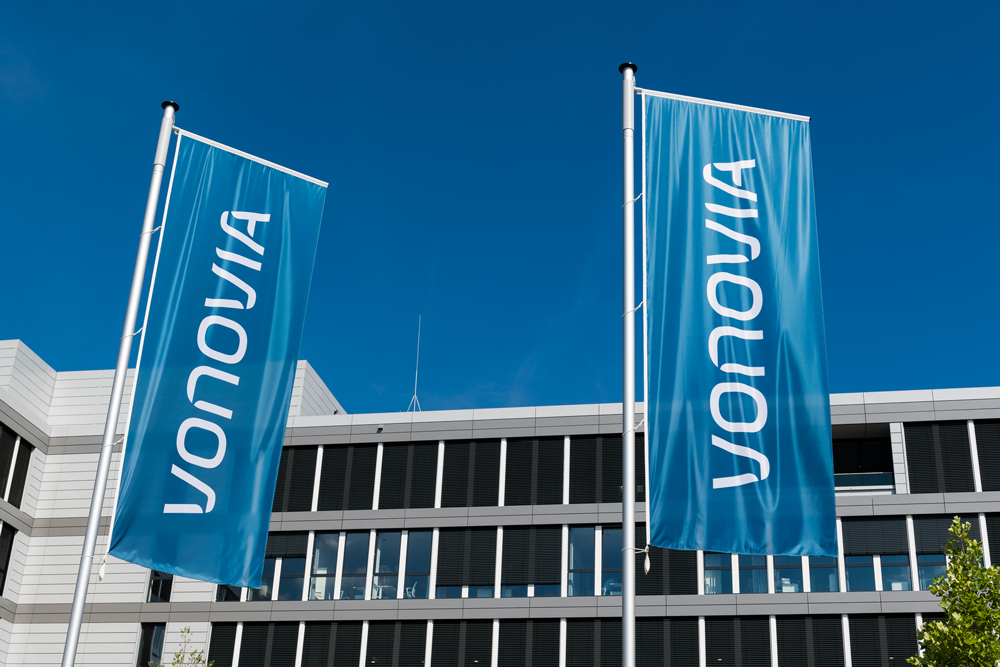Highly Developed 4+2 Strategy
The 4+2 strategic approaches already in place can be briefly summarized as follows. More detailed information is available in previous management reports.
The property management strategy is based on the sophisticated management platform, which allows for the efficient management of the portfolio and the successful scaling of the property management business. In this respect, Vonovia makes use of a mix of regional and local services and the Group-wide bundling of services in central service centers. Vonovia also applies this expertise to the property management business in Austria and Sweden in line with the requirement profiles that apply in those markets. The property management strategy is being enhanced, in particular, by digitalization measures in the underlying business processes and at the customer interface. The tenant app is one of the lighthouse projects in this area.
The financing strategy has essentially been implemented in full. Vonovia’s debt, measured in terms of the loan-to-value (LTV) ratio, is stable within the target range of 40% to 45%. Thanks to its broad range of equity and debt capital providers and the investment grade ratings awarded to our company by the rating agencies S&P, Moody’s and Scope, Vonovia has excellent access to the international debt and equity capital markets. As a result, our current focus is on maintaining these credit ratings, optimizing the financing structure and maturity profile, diversifying our financing sources and financial risk management.
The portfolio management strategy focuses on optimizing the portfolio. The portfolio is refined in a targeted manner using privatization measures and the sale of non-strategic properties. On the other hand, tactical acquisitions, modernization, new construction and development measures are used to increase the value of the portfolio in a targeted manner. Vonovia invests in its strategic holdings in urban neighborhoods and urban clusters, especially in line with its climate path to promote sustainability and with its innovation strategy We want to create new homes in our portfolio in the future as part of our densification strategy, using a combination of vertical expansion and new construction on existing land. The portfolio management strategy also includes the activities of the development business on land purchased specifically for this purpose, adding another profitable element to Vonovia’s value chain. The development business, operated under the BUWOG brand, includes the construction of owner-occupied apartments for sale to private investors and owner-occupiers as well as the construction of rented apartments to be managed by the company itself.
The Value-add strategy supplements our core business to include customer-oriented services, e. g., services that are closely related to or influence the rental business. As part of this strategy, we continually evaluate additional innovative service ideas and business models to boost customer satisfaction and add the corresponding activities to our offering. Those areas of the Value-add strategy that have already been established successfully largely include the craftsmen’s organization, the residential environment organization, multimedia services, energy services and metering services, and insurance services. The capability of having our own craftsmen’s and residential environment organization cover the entire portfolio, in particular the maintenance and modernization services, allows us to make the residential units more attractive in general and help to boost customer satisfaction.
Vonovia pursues acquisitions as and when opportunities present themselves. Acquisitions have to be expected to increase in value before they are conducted. Such increases in value are generally assessed in terms of strategic suitability, increases in EBITDA Rental yield per share and a neutral impact on the EPRA NTA per share; these are funded by 50% equity and 50% debt. Furthermore, an acquisition must not pose any risk to the company’s stable BBB+ long-term issuer credit rating. Despite the shorter supply of attractive portfolios, Vonovia remains committed to the implementation of its acquisition strategy, as there are still opportunities for successful takeovers and integration measures available. Vonovia has been growing in recent years thanks to a large number of acquisitions.
The 4+2 Pillars of Our Strategy
Our scalable operational management system allows us to achieve harmonization and generate economies of scale from the full and swift integration of newly acquired companies and portfolios. Making the most of this competitive advantage and using the expertise that has been built up within our organization over time, we are constantly analyzing portfolios that could constitute potential takeover targets. In accordance with our portfolio management strategy and our Value-add strategy, we do not consider acquisitions to be the only way in which to achieve growth but rather see them as key additional strategic levers that help to strengthen the impact of our core strategies.
Our experience and expertise as a leading real estate company on three European markets (Germany, Sweden and Austria) serves as a reference that allows us to invest as part of our internationalization strategy to generate added value by tapping into other European markets. The potential target markets include those that are not yet as professional as the German real estate market, and those that offer attractive overall conditions in terms of rental market growth and household growth. Any activities on other European markets are performed by making targeted direct investments, such as in Sweden and Austria, but also, as an alternative, via high-profile and reliable joint venture partners in the first instance, which is the approach pursued on the French and Dutch markets. This will involve making contact with European partner companies, corresponding investors or political institutions in order to help accurately assess investment opportunities, cooperation options and opportunities for market entry. Vonovia will pursue its internationalization strategy as and when opportunities present themselves. Our activities on other European markets must not impact on our established business in Germany, Austria and Sweden, and must entail risk potential that can be controlled or limited.
European Markets



